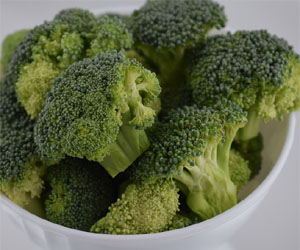


Nourish Your Body And Soul

Wellness recipes are more than just delicious dishes; they are a cornerstone of a balanced and health-focused lifestyle. In an era where convenience foods and fast food often take center stage, wellness recipes stand as a beacon of good nutrition and self-care. In this article, we will explore the importance of wellness recipes and offer insights into creating meals that promote overall well-being.
What Are Wellness Recipes?
Wellness recipes are a category of dishes designed with health and vitality in mind. These recipes prioritize whole, nutrient-dense ingredients and are typically lower in unhealthy fats, sugars, and processed components. The aim is to provide a culinary experience that not only tantalizes the taste buds but also supports your physical and mental well-being.
Benefits Of Wellness Recipes
Nutrient-Dense: Wellness recipes are packed with essential vitamins, minerals, and antioxidants. They offer a range of nutrients that support the body's functions and strengthen the immune system.
Balanced Nutrition: These recipes aim to provide a well-balanced combination of macronutrients (carbohydrates, proteins, and fats) to ensure sustained energy and satiety.
Weight Management: Wellness recipes often focus on portion control and lower-calorie options, making them a valuable tool for those aiming to manage their weight.
Heart Health: Many wellness recipes are designed to support cardiovascular health by emphasizing heart-healthy ingredients such as whole grains, lean proteins, and unsaturated fats.
Digestive Health: Fiber-rich ingredients, such as fruits, vegetables, and whole grains, are frequently incorporated into wellness recipes to promote digestive health.
Mental Well-Being: Proper nutrition is known to have a positive impact on mental health. Wellness recipes can contribute to mood stability and overall cognitive function.
Creating Wellness Recipes
Creating wellness recipes is an enjoyable and creative process. Here are some guidelines to keep in mind when developing your wellness-focused dishes:
Start With Whole Foods: Base your recipes on whole, unprocessed ingredients like fruits, vegetables, whole grains, lean proteins, and healthy fats.
Portion Control: Pay attention to portion sizes to avoid overeating. Consider using smaller plates to help control portions.
Flavorful Spices: Opt for herbs and spices to add flavor to your dishes instead of excessive salt, sugar, or unhealthy condiments.
Balanced Plates: Strive for balanced plates with a variety of colorful vegetables, a lean protein source, and whole grains.
Healthy Cooking Methods: Choose healthier cooking methods such as grilling, roasting, steaming, and sautéing over deep-frying.
Experiment And Innovate: Don't be afraid to experiment with new ingredients and techniques. Trying new recipes can keep your meals exciting and diverse.
Wellness Recipes For All Occasions
Wellness recipes can be enjoyed at any meal, whether it's breakfast, lunch, or dinner. You can find recipes that cater to specific dietary needs or preferences, such as vegetarian, vegan, gluten-free, or low-carb options. Whether you're making a colorful salad, a protein-packed smoothie, a hearty soup, or a flavorful stir-fry, wellness recipes offer an abundance of choices that can easily become a regular part of your diet.
Wellness recipes offer a delicious and wholesome path to a healthier, more balanced lifestyle. By embracing these recipes, you can nourish your body and soul, ensuring that every bite you take contributes to your overall well-being. Cooking with wellness in mind is a rewarding journey that allows you to savor the pleasures of good food while nurturing your health and vitality.
Nature's Soothing Elixir
 The Science Of Aromatherapy
The Science Of Aromatherapy
Aromatherapy, the practice of using essential oils for therapeutic purposes, capitalizes on the connection between our sense of smell and the brain's limbic system, which governs our emotions. The aromatic compounds in essential oils can influence our mood, emotions, and even our physical well-being.
Stress Reduction: A Holistic Approach
Stress affects us on multiple levels, and a holistic approach to its reduction is essential. Essential oils can address the interconnected aspects of stress, providing relief on both emotional and physical levels.
Emotional Stress Relief
One of the most well-known benefits of essential oils is their ability to alleviate emotional stress. Oils like lavender, chamomile, and rose can have a calming and soothing effect on the mind. Inhaling these fragrances or using them in massages can help reduce anxiety, lower stress levels, and promote a sense of well-being.
Physical Stress Relief
Stress often manifests physically, leading to muscle tension, headaches, and other discomforts. Essential oils like eucalyptus, peppermint, and ginger are valuable allies in relieving physical stress. They can be applied topically, diluted in carrier oils, or added to bath water to ease muscle tension and reduce headaches.
Stress Reduction Rituals
Incorporating essential oils into your daily routines can create a calming and stress-reducing environment. Diffusers are an excellent way to disperse the aroma throughout your space, but you can also use oils in baths, massages, or even by simply inhaling the scent from a tissue or handkerchief.


 One of the primary benefits of aromatherapy is its ability to improve physical well-being. Essential oils can address various physical issues, from reducing pain and inflammation to promoting better sleep. Oils like lavender and chamomile have proven to be effective in relaxation, which can alleviate physical tension. Eucalyptus and tea tree oils are well-known for their potential to support respiratory health. By integrating these oils into massages, baths, or diffusers, you can enhance your overall physical health in a holistic manner.
One of the primary benefits of aromatherapy is its ability to improve physical well-being. Essential oils can address various physical issues, from reducing pain and inflammation to promoting better sleep. Oils like lavender and chamomile have proven to be effective in relaxation, which can alleviate physical tension. Eucalyptus and tea tree oils are well-known for their potential to support respiratory health. By integrating these oils into massages, baths, or diffusers, you can enhance your overall physical health in a holistic manner.
Emotional Well-Being
Aromatherapy is renowned for its impact on emotional well-being. Scents can have a profound influence on our emotions and mood. Essential oils like citrus, rose, and ylang-ylang can uplift the spirits, reduce anxiety, and foster emotional balance. By inhaling these fragrances or using them in aromatic baths, individuals can experience a positive shift in their emotional state. Aromatherapy empowers us to manage and improve our emotional health holistically.
Mental Well-Being
A clear and focused mind is essential for holistic well-being. Aromatherapy can aid in enhancing mental clarity, reducing stress, and improving concentration. Oils like peppermint, rosemary, and lemon are well-suited to boost cognitive function. Diffusing these oils during work or study sessions can create a mental environment that supports well-being.
The Holistic Approach
Holistic well-being involves addressing all facets of our lives: physical, emotional, and mental. Aromatherapy offers a comprehensive solution that recognizes the interconnectedness of these elements. By using essential oils in various applications, such as massage, inhalation, or as part of relaxation rituals, individuals can embark on a holistic journey to achieve a more balanced and harmonious life.
A Guide To Informed Choices
 Understanding Gluten And Its Implications: First and foremost, it's crucial to understand what gluten is and why it matters for some individuals. Gluten is a protein found in wheat, barley, rye, and their derivatives. For people with celiac disease, even the tiniest amount of gluten can trigger an autoimmune response that damages the small intestine. Those with non-celiac gluten sensitivity may experience digestive discomfort and other symptoms when consuming gluten. Therefore, accurate gluten labeling is essential for their well-being.
Understanding Gluten And Its Implications: First and foremost, it's crucial to understand what gluten is and why it matters for some individuals. Gluten is a protein found in wheat, barley, rye, and their derivatives. For people with celiac disease, even the tiniest amount of gluten can trigger an autoimmune response that damages the small intestine. Those with non-celiac gluten sensitivity may experience digestive discomfort and other symptoms when consuming gluten. Therefore, accurate gluten labeling is essential for their well-being.
The "Gluten-Free" Label: The most critical label to look for is "gluten-free." The "gluten-free" label signifies that the product contains less than 20 parts per million (ppm) of gluten. This threshold is considered safe for the vast majority of people with celiac disease. However, it's essential to remember that some individuals may still react to very low levels of gluten, so it's a personal decision how strict one wants to be.
The Benefits Of Gluten-Free Labels:
Clarity: Gluten-free labels provide clarity and peace of mind. When you see this label on a product, you can confidently purchase and consume it, knowing it meets gluten-free standards.
Efficiency: Gluten-free labels save time. They eliminate the need to scrutinize ingredient lists, which can be a tedious and potentially error-prone process.
Variety: The availability of gluten-free labeled products has expanded significantly in recent years. This means individuals on a gluten-free diet can enjoy a wide variety of foods and options that cater to their dietary needs.
Hidden Gluten Sources: Even when a product doesn't contain obvious gluten-containing ingredients, there might still be hidden sources of gluten. It's crucial to be aware of these potential pitfalls:






A Path To Nutritional Well-Being
 2. Fullness Awareness: Mindful eating promotes awareness of your body's hunger and fullness cues. Superfoods are often highly nutritious and filling, which means you can satisfy your hunger with smaller portions. Being mindful of these cues can help prevent overeating and promote better portion control.
2. Fullness Awareness: Mindful eating promotes awareness of your body's hunger and fullness cues. Superfoods are often highly nutritious and filling, which means you can satisfy your hunger with smaller portions. Being mindful of these cues can help prevent overeating and promote better portion control.
3. Nutrient-Rich Choices: Superfoods are packed with essential nutrients, so choosing them aligns with the mindful eating principle of selecting foods that are nourishing and beneficial for your body. Rather than mindlessly snacking on empty calories, you're making conscious choices that support your health.
4. Reducing Emotional Eating: Mindful eating encourages you to explore the emotions and triggers behind your eating habits. Superfoods, known for their nutrient profiles and potential mood-enhancing properties, can assist in addressing emotional eating patterns. For example, dark chocolate may provide a comforting and mindful treat during times of stress.
5. Mind-Body Connection: Mindful eating fosters a deeper connection between the mind and the body. Superfoods, with their holistic health benefits, can enhance this connection by promoting mental clarity and physical well-being. This connection can lead to a more intuitive and balanced approach to eating.
6. Gratitude And Appreciation: Mindful eating often incorporates gratitude for the food you consume. Superfoods, with their exceptional nutrient density, can inspire gratitude for the nourishment they provide. Acknowledging the effort and resources that went into producing superfoods can cultivate a sense of appreciation.
Nature's Healing Bounty
 A Global Heritage Of Medicinal Plants
A Global Heritage Of Medicinal Plants
The use of medicinal plants is deeply ingrained in human history. Different cultures have harnessed the healing power of local flora, passing down knowledge from generation to generation. Indigenous peoples have traditionally relied on medicinal plants to address a wide spectrum of health issues, from digestive problems to wounds and infections. These traditions persist and continue to be valuable resources for herbal medicine.
Traditional Knowledge Meets Modern Science
The use of medicinal plants is not confined to historical practices; it's a dynamic field that intersects with modern science. In recent decades, there has been a resurgence of interest in traditional herbal medicine, prompting extensive scientific research into the efficacy of medicinal plants.